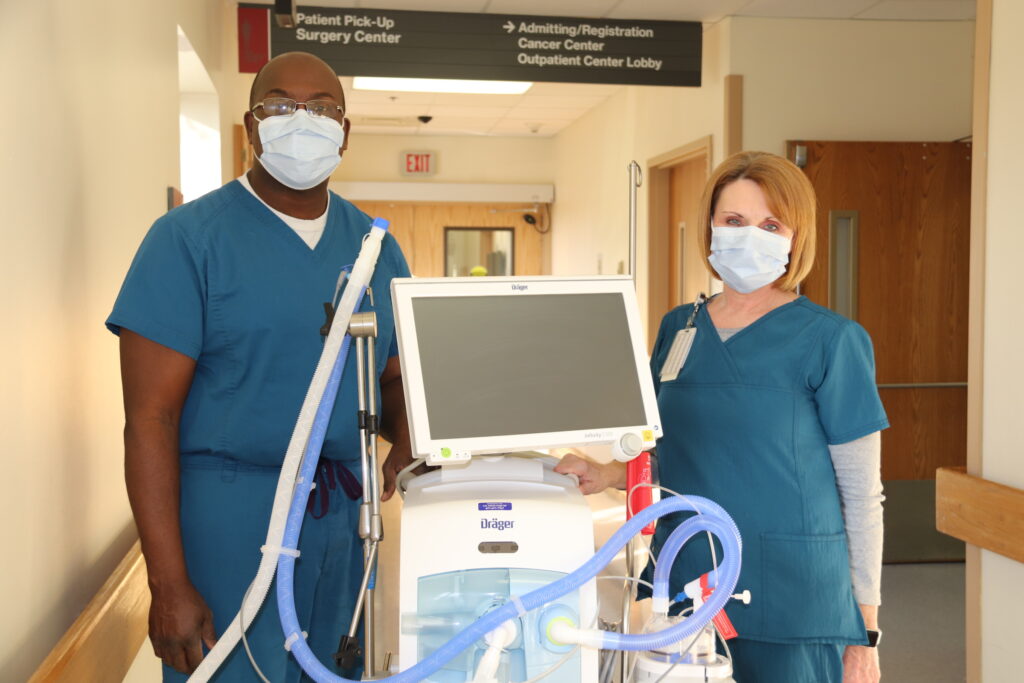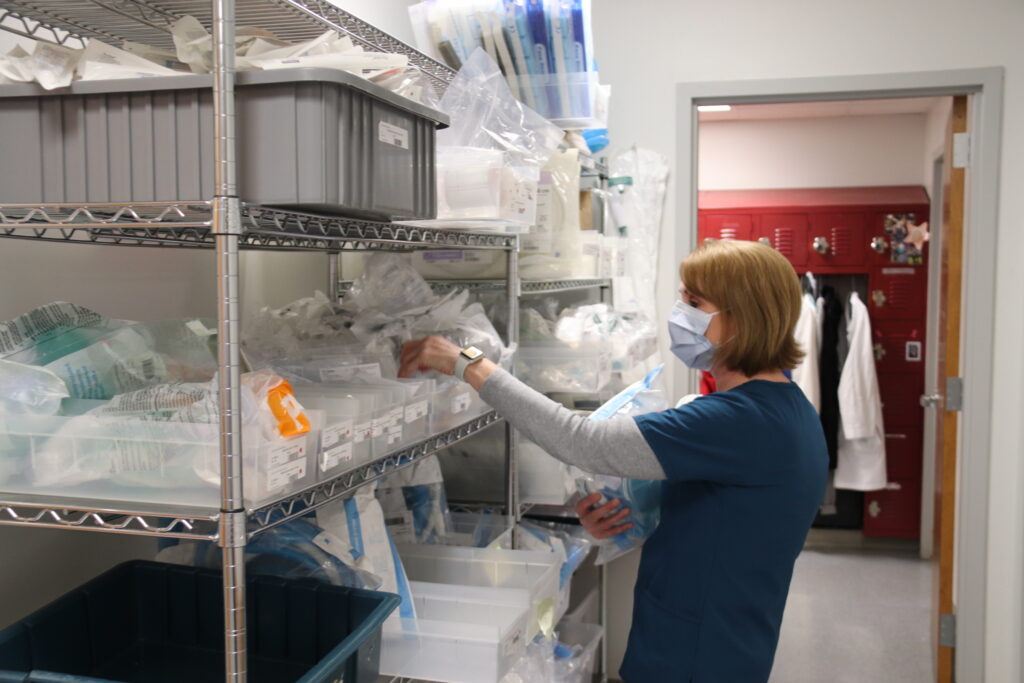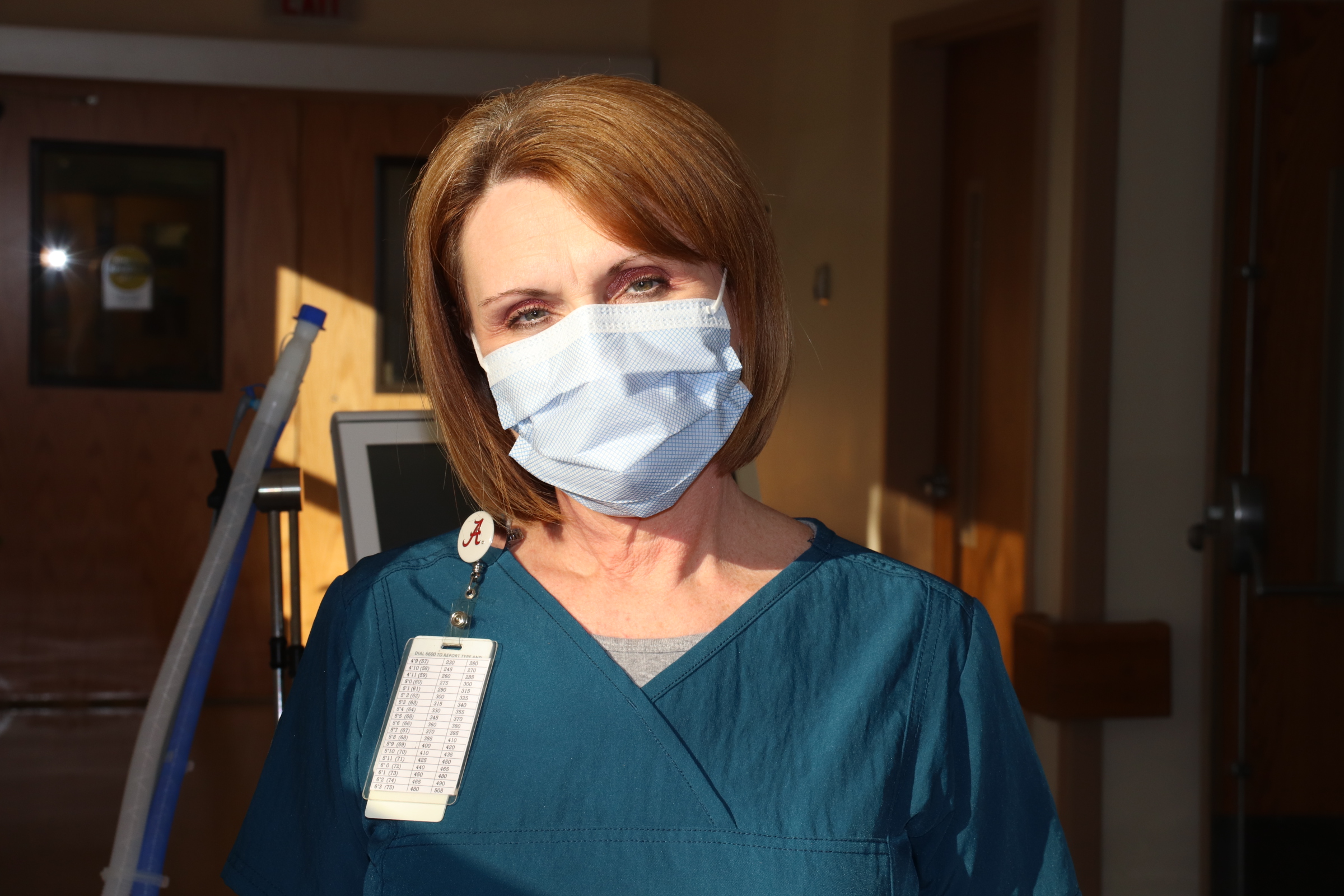Story By Natalie Salvatore
Photos Contributed By John Atkinson
One compassionate healthcare professional at the East Alabama Medical Center understands what it means to persevere during trying times. This January, Tracy Hamby is celebrating her 17th anniversary as a registered respiratory therapist with EAMC, all while the world is still fighting the COVID-19 pandemic.
The coronavirus has drastically altered medical centers everywhere, and EAMC is no different. However, this hospital has not stopped providing safe, empathetic and top-notch care for their patients. Hamby has first-hand experience working through this health crisis.
Whether she is treating a patient with COVID-19 or with other conditions, Hamby’s job consists of many important duties. As an RRT, her work includes managing the ventilator support systems, administering breathing treatments for patients with asthma, giving diagnostic testing, assisting in emergency situations and operating the many machines and devices available to help patients breathe and feel better.
Hamby decided she wanted to enter this field when her son was born and exposed to RSV, or respiratory syncytial virus. This infection can be detrimental to babies, and her son caught it when he was just two weeks old.
She was living alone with her newborn in San Diego at the time, where he stayed in the NICU, or the neonatal intensive care unit. Luckily, he turned around and recovered.
“After we moved back home from San Diego, I decided I wanted to become a therapist because I was very intrigued by the ventilators and all the machines that we use to help people,” Hamby said.
She completed both online schooling and on-the-job training for different pathways in this profession as she worked towards her current position.
Hamby said her job before COVID-19 is nothing like it is now. Before the pandemic, she had more downtime, despite their busy schedules. Therapists could see patients and have time to complete their charting, all while taking care of patients’ needs and any emergencies that arose. Now, they have no downtime, as they are constantly on the go and assessing the increasing number of issues and emergencies.
With more patients in the ICU, it is taking more staff members to care for everyone. Assessing which patients need ventilators or other types of breathing assistance takes a lot of their time.

“Some days, you’re looking at somebody, and you’re doing everything you can, but you can’t really help them breathe. That’s a big difference since the pandemic hit,” Hamby said.
The seventh floor at EAMC houses patients who require high-velocity oxygen systems. Monitoring these patients is also where Hamby spends a lot of her time now. Keeping a close eye on them is vital because if the machines are not functioning correctly, the patients could stop breathing and die.
Along with the heightened workload and stress of dealing with a new virus, Hamby said this pandemic has also changed many of the little day-to-day things that the staff has become accustomed to. She washes her hands a lot more, makes sure to wear her PPE and immediately removes her work shoes and showers after her shifts, especially if she worked in the ICU.
Not only has this pandemic caused a physical strain on Hamby, it has also taken a mental and spiritual toll on her. With a health pandemic comes more possibility for fatalities.
“It’s not every day, but some days I deal with three or four people dying, and it’s been the hardest thing,” she said. “I go home and I’m very quiet. I read my Bible and pray a lot, and that’s how I deal with it,”
Throughout these difficult times, Hamby and her coworkers have had to lean on each other more. The staff has grown closer together over the last several months.
“Everybody has drawn together to help cover all the shifts, because with all this going on, we have been short staffed. It’s just trying to hold it together, that’s what’s been hard,” she said.
Interacting face-to-face with patients and their families is what also keeps Hamby going. She said she tries to make patients smile and lighten the situation for them. She also tries to alleviate any fears their families may have by answering their questions.

Hamby did not foresee all of this happening when she entered the field; however, she still enjoys her job, she said.
“Seeing your patients that do get better and touching somebody’s life, that’s what is rewarding to me,” she said. “It’s been very tough this year, but I wouldn’t change it for anything.”
With the COVID-19 vaccine recently becoming available, Hamby decided to get the vaccine. However, she felt concerned about the side effects she could experience and thought there was not enough information available about the vaccination beforehand.
What is scary about this disease, Hamby said, is the unknown. COVID-19 can affect people differently and causes a range in severity of symptoms.
Ultimately, Hamby said she did decide to receive the shot. The complications from COVID-19 would likely be worse, she said, than complications from the vaccine.
She hopes that, even though no one knows what is to come, this will all end soon.
The Auburn-Opelika community can feel confident, however, that their health will be in great hands under her care.

